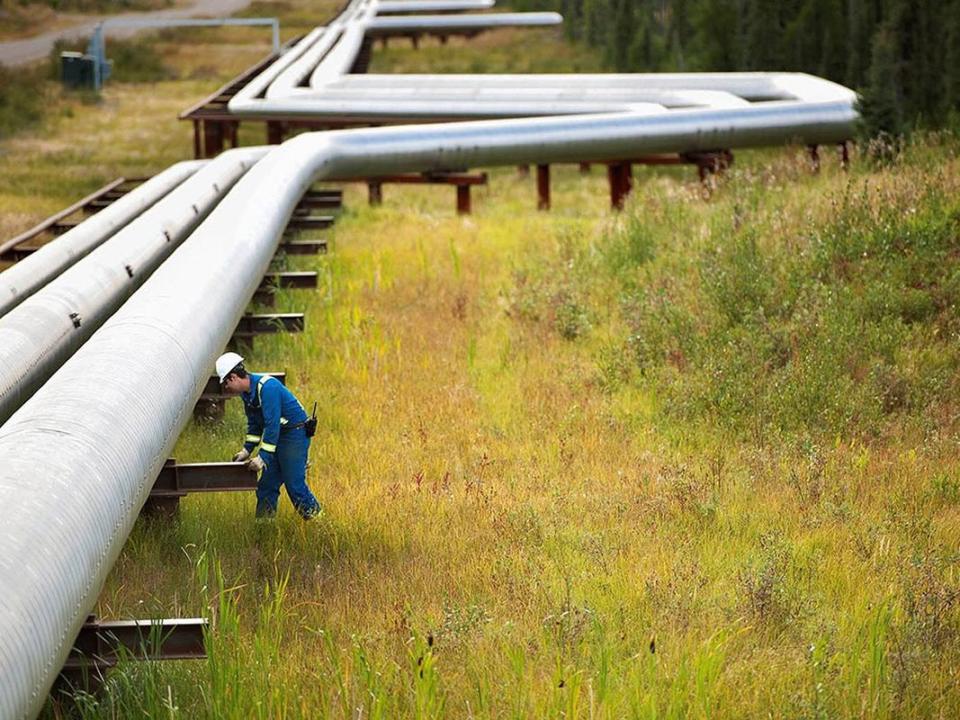Trans Mountain opens 'pretty vast market,' says Cenovus — but it's likely Canada's last pipeline

Cenovus Energy Inc. has its eyes set on a “pretty vast market” as it gets set to make the most of the Trans Mountain pipeline extension that officially opened on Wednesday and is expected to provide oil producers access to better prices and newer markets.
Oil was already flowing in some sections of the 1,150-kilometre pipeline owned by the federal government’s Trans Mountain Corp. But starting on May 1, all shippers are subject to the new tariff and tolls for the pipeline connecting Alberta and British Columbia.
“We have been preparing for this for quite some time,” Drew Zieglgansberger, Cenovus executive vice-president and chief commercial officer, said during a conference call on Wednesday. “Our teams have been working with buyers; there’s a pretty vast market out there, which is exciting.”
Canadian Natural Resources Ltd. on Thursday also said the Trans Mountain expansion creates additional opportunities on the west coast, both by land and by water.
“We do have a mixture of both land and marine sales. We will continue to develop those marine sales,” company president Scott Stauth said during a first-quarter earnings call. “We have secured some marine sales so far. We will continue to evolve that market as we go forward here, but really its bit of a balance of both land and marine side and some of that may end up going marine side on to the West coast or it could move to Asian market.”
The new pipeline, which has a capacity of 590,000 barrels per day, is part of Trans Mountain’s expansion project, which will twin with an existing line built in 1953 that already transfers about 300,000 barrels of oil per day.
The idea to build the new pipeline was first proposed about 12 years ago by Houston-based Kinder Morgan Inc. The project went through an ownership change, billions of dollars’ worth of cost revisions and several protests from environmentalists before completion.
“I think as a nation we suffer … from lower and decreasing productivity and we need to find ways to get major projects built, to get infrastructure built,” Cenovus chief executive John McKenzie said on the conference call. “We would all realize that 13 years is far too long for a project of this national importance to get built and I think that’s something that everybody understands.”
The cost to build the new pipeline was initially estimated in 2017 to be around $7.4 billion. Since then, the cost has ballooned to about $34 billion, leading to some criticism from the industry.
The pandemic and natural disasters such as floods and fires played roles in increasing the timeline and cost of the project, but a key reason behind the revisions was how the company decided to construct the pipeline compared to the originally conceived approach, according to Mark Maki, Trans Mountain’s chief financial and strategy officer .
“The really important thing with any long linear infrastructure here in Canada is recognizing the people that were here first and they have to be part of the economic equation,” Maki said in an interview last month. “That’s a big thing with this project. Engagement with Indigenous nations, Indigenous contractors, partnerships and, ultimately, Indigenous ownerships.
Maki expects the Trans Mountain experience to be the “new normal” for large-scale linear infrastructure projects in Canada.
Industry insiders expect the new pipeline to reach its capacity within two to five years, after which Canada may need another line to export its oil products. McKenzie agreed, but said building more pipelines won’t be easy.
“It is increasingly difficult to build pipelines in this country and it wouldn’t surprise me if this were the last pipeline,” he said. “But the reality is that we have a tremendous resource here in Canada … and we produce more sustainably than anywhere else in the world.”
• Email: nkarim@postmedia.com
Bookmark our website and support our journalism: Don’t miss the business news you need to know — add financialpost.com to your bookmarks and sign up for our newsletters here.

 Yahoo Finance
Yahoo Finance 